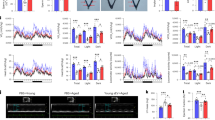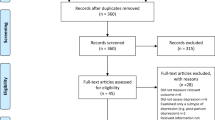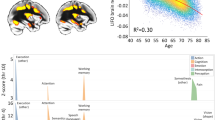Abstract
According to the 'critical period' hypothesis, which attempts to explain the observed discrepancies in the studies on estrogen and cognition, estrogen therapy effectively decreases cognitive decline in aging women when it is initiated around the time of menopause but not when it is started decades later. Here, I review studies in which the timing of the initiation of estrogen therapy was provided, to determine whether their findings support the 'critical period' hypothesis. The vast majority of the reviewed studies support the idea that early but not late initiation of estrogen therapy might prevent or delay cognitive decline in aging women. Nevertheless, numerous design issues, such as the specific drugs and doses that were used, the possible effects of progestins on cognition, and the failure to administer neuropsychological tests of specific cognitive domains that are sensitive to estrogen therapy confound the extant literature. In view of the reanalyzes of the Women's Health Initiative's data that show a beneficial effect of estrogen therapy on cardiac and breast diseases in women aged 50−59 years, more definitive evidence is needed to confirm that the early initiation of estrogen therapy that is continued for a few years provides enduring protection against cognitive aging 15−20 years later.
Key Points
-
Estrogen has numerous beneficial effects on the structure and function of the brain
-
Findings of previous studies are inconsistent with regard to the protective role of estrogen therapy against cognitive aging in postmenopausal women
-
According to the 'critical period' hypothesis, estrogen therapy effectively delays cognitive aging when it is initiated shortly after the menopause but not when it is initiated decades after the menopause
-
Some, but not all, previous findings support the 'critical period' hypothesis
This is a preview of subscription content, access via your institution
Access options
Subscribe to this journal
Receive 12 print issues and online access
$209.00 per year
only $17.42 per issue
Buy this article
- Purchase on Springer Link
- Instant access to full article PDF
Prices may be subject to local taxes which are calculated during checkout
Similar content being viewed by others
References
United Nations: Bulletin on Aging No. 2, Division for Social Policy and Development. United Nations Secretariat: New York (2001).
Wilson, R. S. et al. Individual differences in rates of change in cognitive abilities of older persons. Psychol. Aging 17, 179–193 (2002).
Small, S. A., Stern, Y. M., Tang, Y. M. & Mayeux, R. Selective decline in memory function among healthy elderly. Neurology 52, 1392–1396 (1999).
Salthouse, T. A. Mediation of adult age differences in cognition by reductions in working memory and speed of processing. Psychol. Sci. 2, 179–183 (1991).
Zelinski, E. M., Gilewski, M. J. & Schaie, K. W. Individual differences in cross-sectional and 3-year longitudinal memory performance across the adult life span. Psychol. Aging 8, 176–186 (1993).
Grady, C. L. & Craik, F. I. Changes in memory processing with age. Curr. Opin. Neurobiol. 10, 224–231 (2000).
Gregoire, J. M. & Van der Linden, M. Effects of age on forward and backward digit span. Aging, Neuropsychology, and Cognition 4, 140–149 (1997).
Esiri, M. M. Ageing and the brain. J. Pathol. 211, 181–187 (2007).
H. Morrison, J. H. & Hof, P. R. Life and death of neurons in the aging brain. Science 278, 412–419 (1997).
McEwen, B. Estrogen actions throughout the brain. Recent Prog. Horm. Res. 57, 357–384 (2002).
Gould, E., Woolley, C. S., Frankfurt, M. & McEwen, B. S. Gonadal steroids regulate dendritic spine density in hippocampal pyramidal cells in adulthood. J. Neurosci. 10, 1286–1291 (1990).
Woolley, C. S., Gould, E., Frankfurt, M. & McEwen, B. S. Naturally occurring fluctuation in dendritic spine density on adult hippocampal pyramidal neurons. J. Neurosci. 10, 4035–4039 (1990).
Sandstrom, N. J. & Williams, C. L. Memory retention is modulated by acute estradiol and progesterone replacement. Behav. Neurosci. 115, 384–393 (2001).
Luine, V. N. Estradiol increases choline acetyltransferase activity in specific basal forebrain nuclei and projection areas of female rats. Exp. Neurol. 89, 484–490 (1985).
Pike, C. J. Estrogen modulates neuronal Bel-xl expression and β-amyloid-induced apoptosis: relevance to Alzheimer's disease. J. Neurochem. 72, 1552–1563 (1999).
Greene R. A. Estrogen and cerebral blood flow: a mechanism to explain the impact of estrogen on the incidence and treatment of Alzheimer's disease. Int. J. Fertil. Womens Med. 45, 253–257 (2000).
Lee, S. J. & McEwen, B. S. Neurotrophic and neuroprotective actions of estrogens and their therapeutic implications. Annu. Rev. Pharmacol. Toxicol. 41, 569–591 (2001).
Sherwin, B. B. Estrogen and/or androgen replacement therapy and cognitive functioning in surgically menopausal women. Psychoneuroendocrinology 13, 345–357 (1988).
Phillips, S. M. & Sherwin, B. B. Effects of estrogen on memory function in surgically menopausal women. Psychoneuroendocrinology 17, 485–495 (1992).
Shaywitz, S. E. et al. Better oral reading and short-term memory in midlife, postmenopausal women taking estrogen. Menopause 10, 420–426 (2003).
Espeland, M. A. et al. Conjugated equine estrogens and global cognitive function in postmenopausal women: Women's Health Initiative Memory Study. JAMA 291, 2959–2968 (2004).
Shumaker, S. A. et al. Conjugated equine estrogens and incidence of probable dementia and mild cognitive impairment in postmenopausal women: Women's Health Initiative Memory Study. JAMA 291, 2947–2958 (2004).
Gibbs, R. B. & Gabor, R. Estrogen and cognition: applying preclinical findings to clinical perspectives. J. Neurosci. Res. 74, 637–643 (2003).
Resnick, S. M. & Henderson, V. W. Hormone therapy and risk of Alzheimer disease: a critical time. JAMA 288, 2170–2172 (2002).
Jezierski, M. K. & Sohrabji, F. Neurotrophin expression in the reproductively senescent forebrain is refractory to estrogen stimulation. Neurobiol. Aging 22, 309–319 (2001).
Gibbs, R. B. Effects of gonadal hormone replacement on measures of basal forebrain cholinergic function. Neuroscience 101, 931–938 (2000).
Verghese, J. et al. Cognitive performance on surgically menopausal women on estrogen. Neurology 55, 872–874 (2000).
MacLennan, A. H. et al. Hormone therapy, timing of initiation, and cognition in women aged older than 60 years: the REMEMBER pilot study. Menopause 13, 28–36 (2006).
Jacobs, D. M. et al. Cognitive function in nondemented older women who took estrogen after the menopause. Neurology 50, 368–373 (1998).
Matthews, K., Cauley, J., Yaffe, K. & Zmuda, J. M. Estrogen replacement therapy and cognitive decline in older community women. J. Am. Geriatr. Soc. 47, 518–523 (1999).
Bagger, Y. Z. et al. Early postmenopausal hormone therapy may prevent cognitive impairment in later life. Menopause 12, 12–17 (2005).
Viscoli, C. M. et al. Estrogen therapy and risk of cognitive decline: results from the Women's Estrogen for Stroke Trial (WEST). Am. J. Obstet. Gynecol. 192, 387–393 (2005).
Duka, T., Tasker, R. & McGowan, J. F. The effects of 3-week estrogen hormone replacement on cognition in elderly healthy females. Psychopharmacology (Berl.) 149, 129–139 (2000).
Schiff, R., Bulpitt, C. J., Wesnes, K. A. & Rajkumar, C. Short-term transdermal estrogen therapy, cognition and depressive symptoms in healthy older women. A randomized placebo-controlled pilot cross-over study. Psychoneuroendocrinology 30, 309–315 (2005).
Pefanco, M. A. et al. The effect of 3-year treatment with 0.25 mg/day of micronized 17 beta-estradiol on cognitive function in older postmenopausal women. J. Am. Geriatr. Soc. 55, 426–431 (2007).
Yaffe, K. et al. Effects of ultra-low dose transdermal estradiol on cognition and health related quality of life. Arch. Neurol. 63, 945–950 (2006).
Janowsky, S. J., Chavez, B. & Orwoll, F. Sex steroids modify working memory. J. Cogn. Neurosci. 12, 407–414 (2000).
Binder, E. F., Schectman, K. B., Birge, S. J., Williams, D. B. & Kohrt, W. M. Effects of hormone replacement therapy on cognitive performance in elderly women. Maturitas 38, 137–146 (2001).
Wolf, O. T. et al. Two weeks of transdermal estradiol treatment in postmenopausal elderly women and its effect on memory and mood. Psychoneuroendocrinology 24, 727–741 (1999).
Resnick, S. M., Pham, D. L., Kraut, M. A., Zonderman, A. M. & Davatzikos, C. Longitudinal magnetic resonance imaging studies of older adults: a shrinking brain. J. Neurosci. 23, 3295–3301 (2003).
Gleason, C. E., Carlsson, C. M., Johnson, S., Atwood, C. & Asthana, S. Clinical pharmacology and differential cognitive efficacy of estrogen preparations. Ann. NY Acad. Sci. 1052, 93–115 (2005).
Bhavnani, B. R. Pharmacokinetics and pharmacodynamics of conjugated equine estrogens: chemistry and metabolism. Proc. Soc. Exp. Biol. Med. 217, 6–16 (1998).
Kuiper, G. G. et al. Comparison of the ligand binding specificity and transcript tissue distribution of estrogen receptors alpha and beta. Endocrinology 138, 863–870 (1997).
Bassuk, S. S. & Murphy, J. M. Characteristics of the Modified Mini-Mental State Exam among elderly persons. J. Clin. Epidemiol. 56, 622–628 (2003).
LeBlanc, E. S., Janowsky, J., Chan, B. K. & Nelson, H. D. Hormone replacement therapy and cognition: systematic review and meta-analysis. JAMA 285, 1489–1499 (2001).
Utian, W. H. et al. Estrogen and progestogen use in postmenopausal women: July 2008 position statement of the North American Menopause Society. Menopause 15, 584–602 (2008).
Reid, R. L. et al. Menopause and Osteoporosis Update 2009. J. Soc. Obstet. Gynecol. Can. 31 (Suppl. 1), S1–S48 (2009).
Rocca, W. A. et al. Increased risk of cognitive impairment or dementia in women who underwent oophorectomy before menopause. Neurology 69, 1074–1083 (2007).
Jezierski, M. K. & Sohrabji, F. Neurotrophin expression in the reproductively senescent forebrain is refractory to estrogen stimulation. Neurobiol. Aging 22, 309–319 (2001).
Dumas, J., Hancur-Bucci, C., Naylor, M., Sites, C. & Newhouse, P. Estradiol interacts with the cholinergic system to affect verbal memory in postmenopausal women: evidence for the critical period hypothesis. Horm. Behav. 53, 159–169 (2008).
Rossouw, J. E. et al. Postmenopausal hormone therapy and risk of cardiovascular disease by age and years since menopause. JAMA 297, 1465–1477 (2007).
Stefanick, M. L. et al. Effects of conjugated equine estrogens on breast cancer and mammography screening in postmenopausal women with hysterectomy. JAMA 295, 1647–1657 (2006).
Henderson, V. W. et al. Prior use of hormone therapy and incident Alzheimer's disease in the Women's Health Initiative Memory Study [abstract]. Neurology 68 (Suppl. 1), A205 (2007).
Chlebowski, R. T. et al. Influence of estrogen plus progestin on breast cancer and mammography in healthy postmenopausal women: the Women's Health Initiative Randomized Trial. JAMA 289, 3243–3253 (2003).
Rice, M. M. et al. Postmenopausal estrogen and estrogen-progestin use and 2-year rate of cognitive change in a cohort of older Japanese American women: The Kame Project. Arch. Intern. Med. 160, 1641–1649 (2000).
Smith, Y. R., Giordoni, B., Lajiness-O'Neill, R. & Zubieta, J. K. Long-term estrogen replacement is associated with improved nonverbal memory and attentional measures in postmenopausal women. Fertil. Steril. 76, 1101–1107 (2001).
Grady, D. et al. Effect of postmenopausal hormone therapy on cognitive function: the Heart and Estrogen/Progestin Replacement Study. Am. J. Med. 113, 543–548 (2002).
Resnick, S. M. et al. Effects of combination estrogen plus progestin hormone treatment on cognition and affect. J. Clin. Endocrinol. Metab. 91, 1802–1810 (2006).
Rapp, S. R. et al. Effect of estrogen plus progestin on global cognitive function in postmenopausal women: the Women's Health Initiative Memory Study: a randomized controlled trial. JAMA 289, 2663–2672 (2003).
Acknowledgements
The preparation of this manuscript was supported by a grant from the Canadian Institutes of Health Research (No. MOP 89960) awarded to B. B. Sherwin.
Author information
Authors and Affiliations
Corresponding author
Ethics declarations
Competing interests
The author declares no competing financial interests.
Rights and permissions
About this article
Cite this article
Sherwin, B. Estrogen therapy: is time of initiation critical for neuroprotection?. Nat Rev Endocrinol 5, 620–627 (2009). https://doi.org/10.1038/nrendo.2009.193
Issue Date:
DOI: https://doi.org/10.1038/nrendo.2009.193
This article is cited by
-
Hormonal Therapies in Multiple Sclerosis: a Review of Clinical Data
Current Neurology and Neuroscience Reports (2024)
-
Estrogen receptor beta in astrocytes modulates cognitive function in mid-age female mice
Nature Communications (2023)
-
Loss of Estrogen Efficacy Against Hippocampus Damage in Long-Term OVX Mice Is Related to the Reduction of Hippocampus Local Estrogen Production and Estrogen Receptor Degradation
Molecular Neurobiology (2020)
-
GSTA4 mediates reduction of cisplatin ototoxicity in female mice
Nature Communications (2019)
-
The Role of Estrogen in Brain and Cognitive Aging
Neurotherapeutics (2019)



